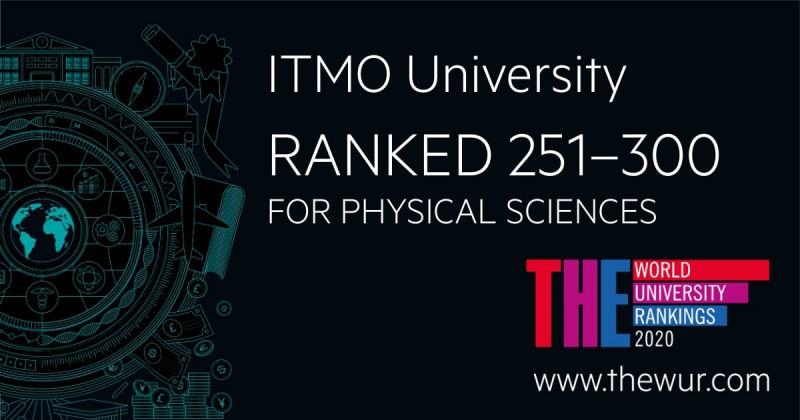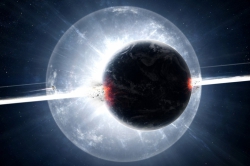The Times Higher Education subject ranking in Physical Sciences includes the world’s universities focusing on STEM fields, such as mathematics, physics, astronomy, chemistry, geology, statistics, and environmental sciences. ITMO University made its debut in the ranking two years ago in the 401-500 place. In 2018, it managed to move higher and was placed in the 301-400 range, while this year, it has made it to the top-300 and was placed in the 251-300 range.
ITMO University is gradually improving its positions in the subject ranking, even though the number of universities assessed by the ranking’s experts is growing. While last year, it included a total of 963 universities, in 2019, it’s already 1,054.
“Over these two years, ITMO University has demonstrated significant growth for each of the ranking’s indicators. Just like last year, the university’s strongest points are such indicators as industry income (90.5 points, up 14.3 from last year), citations (52.4 points, up 6.3 from last year), and international outlook (48.9 points, up 3.7 from last year). This indicator estimates universities’ internationalization level on the basis of the percentage of international staff and students, as well as the number of joint publications with international researchers,” comments Ilya Kuftiryov, the Head of ITMO’s Rankings Research Center.
Apart from ITMO University, Russia is represented in the ranking by 33 other universities. The best results were shown by the Moscow Institute of Physics and Technology (45th place), Moscow Engineering Physics Institute (101–125 range), Novosibirsk State University (126-150), Tomsk State University (176-200), Peter the Great St. Petersburg Polytechnic University (201-250), and St. Petersburg State University (251-300).
In order to be featured in the THE Physical Sciences ranking, a university must have at least 500 publications in the corresponding subject area in the period between 2014 and 2018. In addition, no less than 5% of its staff must work in this subject area. The overall number of university staff is also taken into account.
Published by Times Higher Education, one of the most influential international magazines on science and higher education, THE rankings assess the world’s universities in 11 subject areas: Social Sciences, Business and Economics, Engineering and Technology, Computer Science, Physical Sciences, Clinical, Pre-clinical & Health, Arts & Humanities, Life Sciences, Education, Psychology, and Law.
All of THE’s subject rankings use 13 performance indicators split into five categories: Teaching (learning environment), Research (volume, income and reputation), Citations (research influence), International outlook (staff, students and research), and Industry income (innovation).





